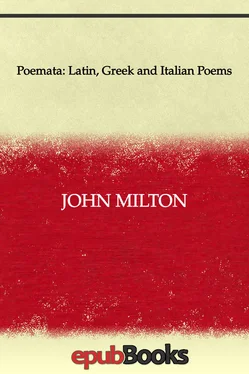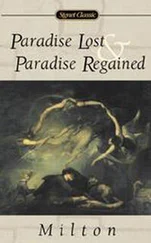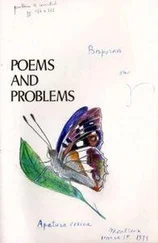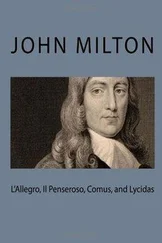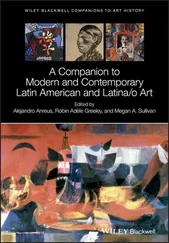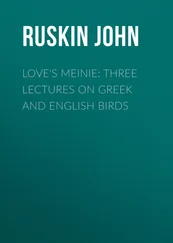Luxurious dainties destin'd to the gulph
Immense of gluttony were known, and ere
Lyaeus [126] Bacchus, or Wine.
deluged yet the temp'rate board.
Then sat the bard a customary guest
To share the banquet, and, his length of locks
With beechen honours bound, proposed in verse
The characters of Heroes and their deeds
To imitation, sang of Chaos old,
Of Nature's birth, of Gods that crept in search
Of acorns fall'n, and of the thunderbolt
Not yet produc'd from Aetna's fiery cave.
And what avails, at last, tune without voice,
Devoid of matter? Such may suit perhaps
The rural dance, but such was ne'er the song
Of Orpheus, whom the streams stood still to hear
And the oaks follow'd. Not by chords alone
Well–touch'd, but by resistless accents more
To sympathetic tears the Ghosts themselves
He mov'd: these praises to his verse he owes.
Nor Thou persist, I pray thee, still to slight
The sacred Nine, and to imagine vain
And useless, Pow'rs by whom inspir'd, thyself
Art skillfill to associate verse with airs
Harmonious, and to give the human voice
A thousand modulations, heir by right
Indisputable of Arion's fame. [127] John Milton Sr. was a fine musician. Arion was a lyric poet of Methymna, in Lesbos, who was saved from drowning by dolphins which he charmed with his song.
Now say, what wonder is it, if a son
Of thine delight in verse, if so conjoin'd
In close affinity, we sympathize
In social arts and kindred studies sweet?
Such distribution of himself to us
Was Phoebus' choice; thou hast thy gift, and I
Mine also, and between us we receive,
Father and son, the whole inspiring God.
No. Howsoe'er the semblance thou assume
Of hate, thou hatest not the gentle Muse,
My Father! for thou never bad'st me tread
The beaten path and broad that leads right on
To opulence, nor did'st condemn thy son
To the insipid clamours of the bar,
To laws voluminous and ill observ'd,
But, wishing to enrich me more, to fill
My mind with treasure, led'st me far away
From city–din to deep retreats, to banks
And streams Aonian, [128] Aonia is a plain in Boeotia.
and, with free consent
Didst place me happy at Apollo's side.
I speak not now, on more important themes
Intent, of common benefits, and such
As Nature bids, but of thy larger gifts
My Father! who, when I had open'd once
The stores of Roman rhetoric, and learn'd
The full–ton'd language, of the eloquent Greeks,
Whose lofty music grac'd the lips of Jove,
Thyself did'st counsel me to add the flow'rs
That Gallia [129] France.
boasts, those too with which the smooth
Italian his degentrate speech adorns,
That witnesses his mixture with the Goth,
And Palestine's prophetic songs divine. [130] The Old Testament Scriptures.
To sum the whole, whate'er the Heav'n contains,
The Earth beneath it, and the Air between,
The Rivers and the restless deep, may all
Prove intellectual gain to me, my wish
Concurring with thy will; Science herself,
All cloud removed, inclines her beauteous head
And offers me the lip, if, dull of heart,
I shrink not and decline her gracious boon.
Go now, and gather dross, ye sordid minds
That covet it; what could my Father more,
What more could Jove himself, unless he gave
His own abode, the heav'n in which he reigns?
More eligible gifts than these were not
Apollo's to his son, had they been safe
As they were insecure, who made the boy
The world's vice–luminary, bade him rule
The radiant chariot of the day, and bind
To his young brows his own all dazzling–wreath.
I therefore, although last and least, my place
Among the Learned in the laurel–grove
Will hold, and where the conqu'ror's ivy twines,
Henceforth exempt from th'unletter'd throng
Profane, nor even to be seen by such.
Away then, sleepless Care, Complaint away,
And Envy, with thy "jealous leer malign"
Nor let the monster Calumny shoot forth
Her venom'd tongue at me. Detested foes!
Ye all are impotent against my peace,
For I am privileged, and bear my breast
Safe, and too high, for your viperean wound.
But thou my Father! since to render thanks
Equivalent, and to requite by deeds
Thy liberality, exceeds my power,
Sufffice it, that I thus record thy gifts,
And bear them treasur'd in a grateful mind!
Ye too, the favourite pastime of my youth,
My voluntary numbers, if ye dare
To hope longevity, and to survive
Your master's funeral pile, not soon absorb'd
In the oblivious Lethaean gulph
Shall to Futurity perhaps convey
This theme, and by these praises of my sire
Improve the Fathers of a distant age.
VII
Psalm CXIV [131] Translated from the Latin, and not Milton's Greek poem. Milton's own English version, presented below, was done, he tells us, "at fifteen years old."
When Israel by Jehovah call'd
From Egypt's hostile plain,
Pour'd forth in numbers as the Sand
And sought the adjacent main:
Then God descended from on high
To lead the favour'd Race
To rule o'er Jacob, & his Name
In Judah's Tribe to place.
The Sea at their approach alarm'd
In wild amazement fled
And Jordan's flood was driven back
Within it's fountainhead.
The Mountains from their basis shook
Confess'd the Parent God!
With sudden throws like Rams they skipp'd
And broken, fell abroad.
The little Hills by the same power
Were from their Center torn
Like Lambs resistless they gave way
In Tumult wild, upborn.
Ye Waves what strange amazement, say,
Seiz'd on you that you fled?
Thou Jordan too! On Israel's march,
Why driven to thy Head?
Ye Mountains whence this sudden fright
That shook you from your base?
And whence, ye little Hills, your flight
From Israel's chosen Race?
Tremble thou Earth! Jehovah leads,
And guards the might Host!
That God, who by his awful Word,
Commands the Stream to flow [132] See Exodus, chapter 17.
From flinty Rocks; & pouring thence,
To form the Lake below.
When the blest seed of Terah's faithful Son, [133] Abraham.
After long toil their liberty had won,
And past from Pharian [134] Egyptian.
fields to Canaan Land,
Led by the strength of the Almighty's hand,
Jehovah's wonders were in Israel shown,
His praise and glory was in Israel known.
That saw the troubl'd Sea, and shivering fled,
And sought to hide his froth–becurled head
Low in the earth, Jordan's clear streams recoil,
As a faint host that hath receiv'd the foil.
Читать дальше
